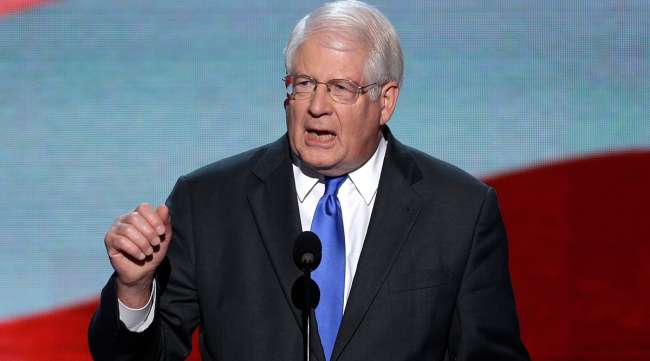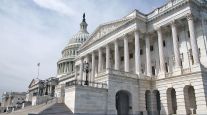Senior Reporter
Infrastructure Grants, Resiliency Advance in Fiscal 2020 House Transportation Bill

[Stay on top of transportation news: Get TTNews in your inbox.]
WASHINGTON — A transportation funding bill that would provide grants for multimodal projects and promote nationwide resilience in new infrastructure was advanced by a panel in the U.S. House of Representatives on June 4.
The Democratic-led Appropriations Committee passed its fiscal 2020 transportation funding bill by a vote of 29 to 21. The bill would give the U.S. Department of Transportation $1 billion for a grants program designed to assist with big-ticket, multimodal projects in states and cities.
The Better Utilizing Investments to Leverage Development, or BUILD, grants allocation would amount to a $100 million increase above the 2019 enacted level.
On resiliency, the legislation would direct officials at DOT to prioritize the concept. According to a report meant to explain the legislation’s objective, the panel calls for new construction to “address the risk of structure failure or loss of use from natural hazards throughout the lifetime of the project.” A priority for many Democrats in Congress recently has been to guarantee new infrastructure projects are capable of withstanding the force of severe weather events.
Transportation, Housing and Urban Development, and Related Agencies Appropriations Subcommittee Chairman David Price (D-N.C.), the bill’s sponsor, argued the measure helps to rebuild thousands of deficient bridges and corridors determined to be in poor condition.
As he put it, the bill “makes forward-looking investments in our housing and transportation infrastructure, while ensuring concerted attention to safety, the needs of the most vulnerable and resilience.”
“It will benefit all American communities — urban and rural — and lays the foundation for economic growth and opportunity,” he added.
The chamber’s floor managers have not announced when a vote would be scheduled on the bill. Senate funding leaders have yet to consider their version.
It will benefit all American communities — urban and rural — and lays the foundation for economic growth and opportunity.
Rep. David Price (D-N.C.), the sponsor of the bill
Overall, the House bill would provide DOT $86.6 billion, $167 million above the 2019 enacted level and more than President Donald Trump’s request.
For the Federal Motor Carrier Safety Administration, the agency that regulates trucking and bus operations, $677 million would be provided. That would be $10 million above the 2019 enacted level.
Provisions in the legislation about trucking include requiring FMCSA publicly post online analyses of violations under its Compliance, Safety, Accountability program. Additionally, funding for the agency would be denied for the review of an industry concern regarding state meal-and-rest-break laws, as well as for promulgating or enforcing a rule eliminating the 30-minute rest break from certain hours-of-service requirements.
Also, the bill would direct FMCSA to require annual inspections of rear underride guards. And, on the issue of size and weight of trucks, the report accompanying the legislation cited a 2015 report that concluded more than 4,800 bridges would need to be reinforced if truck weights reach 91,000 pounds.
During the bill’s consideration, a majority of Democrats defeated an effort by Rep. Steve Womack (R-Ark.) that would have removed from the legislation provisions on meal and rest breaks, CSA and hours-of-service rules. Joined by Rep. Henry Cuellar (D-Texas), Womack argued those trucking-specific provisions would cause “real harm” to the economy.

Womack
For other agencies, the Federal Highway Administration would receive $48.9 billion, $1.7 billion above the president’s request, and $404 million below the 2019 enacted level. The Federal Railroad Administration would receive $3 billion, $877 million above the president’s request, and $96 million more than the 2019 enacted level. And the National Highway Traffic Safety Administration would receive $1 billion, $81 million above the president’s request, and $44 million more than the 2019 enacted level.
To advance freight connectivity projects, $1.5 billion would be provided for the National Highway Freight program.
Additionally, Amtrak would receive $2 billion, highway infrastructure programs would receive $1.75 billion, and the Port Infrastructure Development Program would receive $225 million.
The new Highly Automated Systems Safety Center of Excellence would receive $10 million for reviewing policy on automation, as well as inspect and certify such systems.




